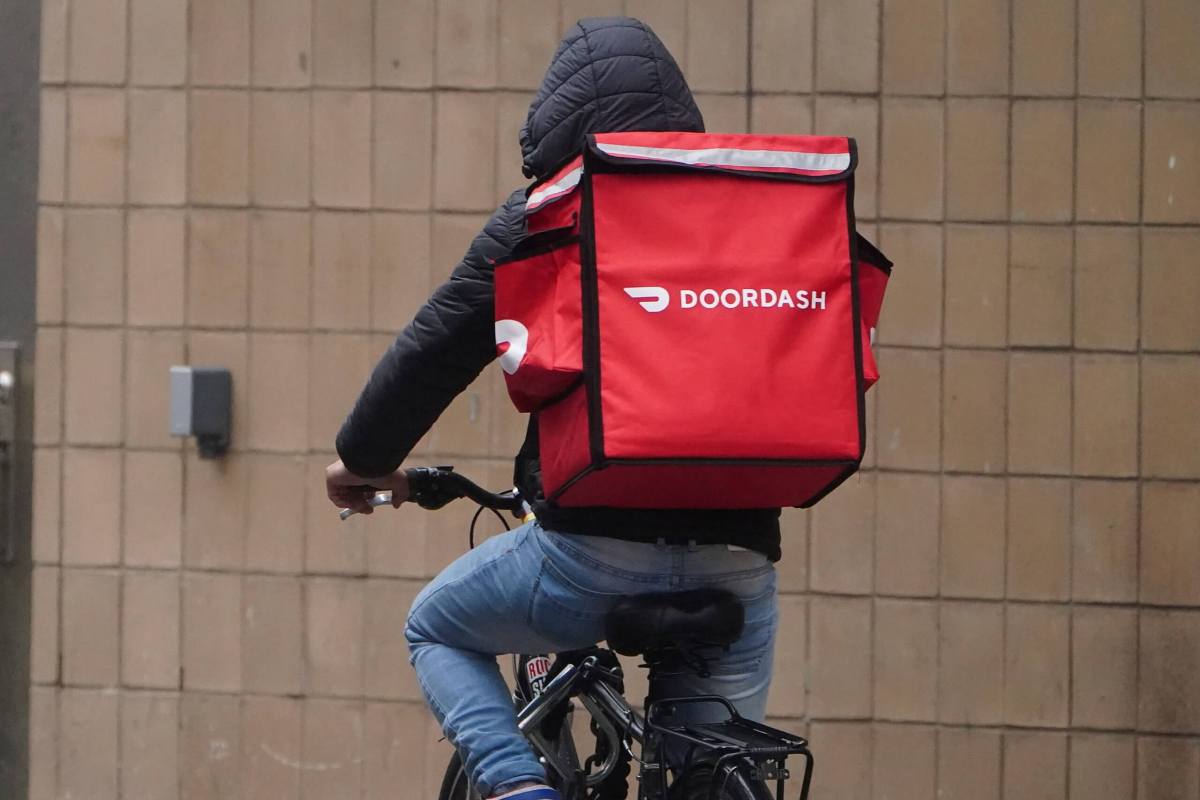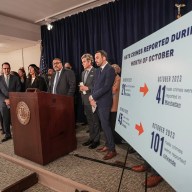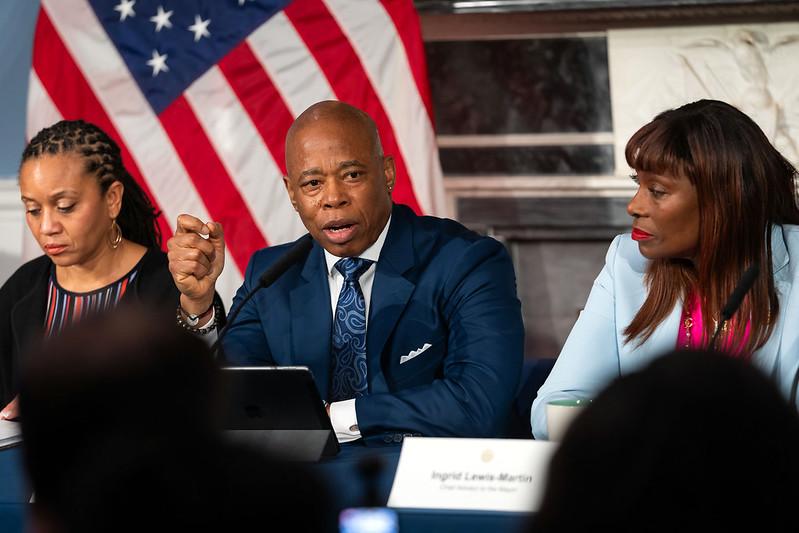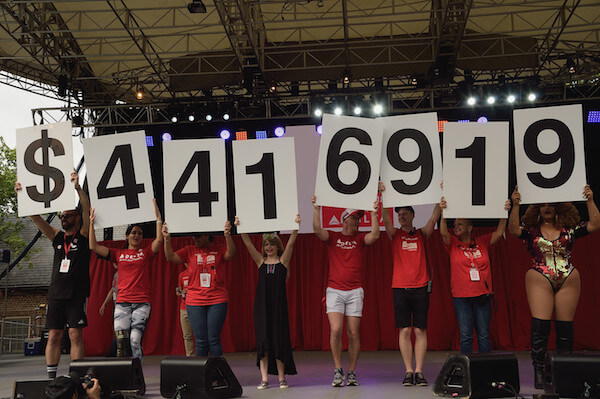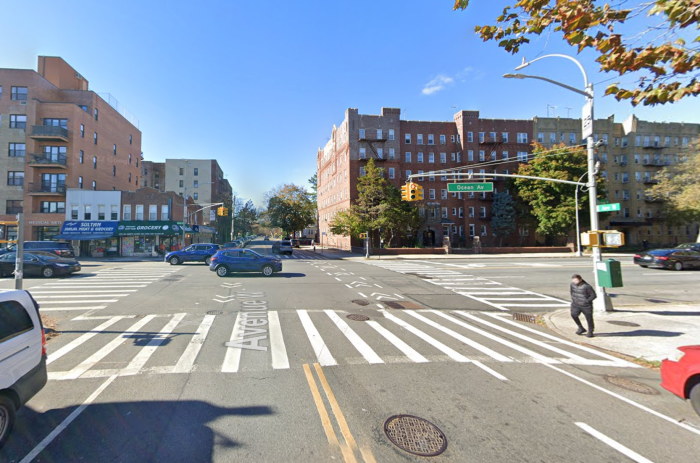Months after GMHC launched a partnership with DoorDash to help deliver food to clients during the pandemic, the HIV service organization is warning that the partnership could be thrown into limbo thanks to approved City Council legislation forcing DoorDash and other delivery services to hand over more personal information about customers.
GMHC and the National LGBT Chamber of Commerce (NGLCC) were among multiple groups that sounded the alarm about Int 2311-2021, which passed on July 29. Lawmakers framed the bill, proposed by Manhattan Councilmember Keith Powers, as a way to assist struggling restaurants during the pandemic. But others decried the legislation as a violation of privacy for consumers — and they said it would require customers to jump through hurdles to opt out of the data sharing.
According to the legislation, the bill requires food delivery services to share information about customers when requested by restaurants, and restaurants would then be able to retain the information. The information that would be provided to restaurants could include names, phone numbers, e-mail addresses, delivery addresses, and whatever the customer has ordered.
“This bill is particularly concerning to us because the ability of our clients to keep their personal information private and confidential is often directly linked to their safety and security,” Poul Olson, GMHC’s chief communications and development officer, wrote in a letter GMHC delivered to out gay Council Speaker Corey Johnson prior to the bill’s passage. “GMHC has a partnership with DoorDash that helps to address the hunger needs of our clients. If Int. 2311-2021 becomes law, we would have to reassess this partnership because DoorDash would be forced to turn over clients’ names, addresses, email addresses, phone numbers and more to every restaurant from which they order food.”
GMHC pointed to other recently enacted laws — such as the State Legislature’s Gender Recognition Act, which waived the requirement that people seeking name changes publish their names in newspapers — as examples of the importance of limiting, not expanding, the circulation of private information.
“The very real fear of harassment and violence [transgender and gender non-conforming] clients face can prevent them from accessing and receiving HIV prevention and treatment services,” the letter stated. “Safeguarding their personal information is foundational to ensuring the safety that is often a gateway to lifesaving health services.”
Notably, the legislation’s text states that third-party delivery services — such as DoorDash — could not limit the restaurants’ use of the information, though they wouldn’t be able to sell, rent, or disclose the information without the consent of customers. However, GMHC and NGLCC both slammed the bill for failing to allow folks to opt in to the data sharing. Instead, customers have to go out of their way to opt out.
“This bill jeopardizes sensitive LGBT business owner and other consumers’ data and places the onus of privacy protection on business owners and individuals through a burdensome opt-out process,” wrote NGLCC’s co-founder and president, Justin G. Nelson, and director Thomas “TJ” Chernick. “As we know you are aware, this legislation is particularly problematic for a community that has already faced heightened risk in navigating confidentiality and security in an online environment.”
Powers and Johnson defended the bill despite the concerns raised by GMHC and NGLCC, as well as other groups.
“The restaurant industry has endured the hardest year in its history and it’s essential that we help them recover by leveling the playing field,” Powers said in a written statement to Gay City News. “Int. 2311 will empower restaurants by creating a fairer delivery market, while also providing strong privacy protections for New Yorkers. Restaurants are small businesses, local employers, and an indispensable part of our city.”
A spokesperson for Johnson insisted that Door Dash and other third-party delivery apps “have been collecting and selling personal data for years but they prevented restaurants from accessing information on their customers.”
“This bill requires them to share this data with the restaurants they partner with at no cost while preserving privacy by allowing customers to opt out of sharing this information,” Johnson’s office said.
A DoorDash spokesperson pushed back against that interpretation, saying they do allow restaurants to see data via several different tools made available to the restaurants.
Co-sponsors of the bill included Helen Rosenthal and Ben Kallos of Manhattan, Diana Ayala of the Bronx and Manhattan, Marj Gjonaj of the Bronx, and Carlos Menchaca, an out gay city lawmaker from Brooklyn.

